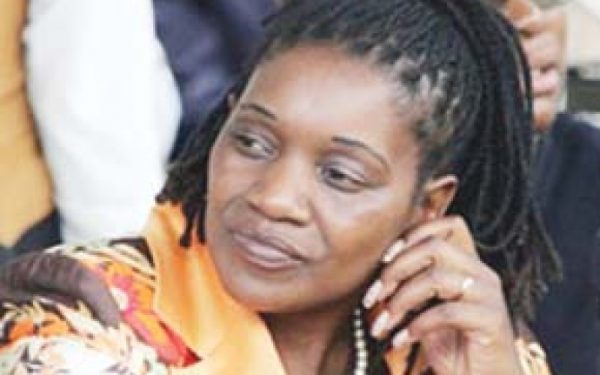ZIMBABWE Miners’ Federation (ZMF) president, Ms Henrietta Rushwaya, has appealed to the Supreme Court against a recent High Court order which stripped her of the presidency of the small-scale miners’ body.
Ms Rushwaya lost the presidency of the association after the High Court declared the results and proceedings of the elections, which brought her to the helm of the small-scale miners’ body, invalid.
She was elected ZMF president in June last year but a group of small-scale miners under the Zvishavane-Mberengwa Miners’ Association (ZMMA), challenged her election at the High Court.
They sought the High Court order to block the holding of the elections and to have them indefinitely rescheduled arguing that Ms Rushwaya wanted to seize ZMF leadership through unconstitutional means.
High Court judge Justice Nicholas Mathonsi granted a provisional order suspending the holding of elections on June 14, 2018 but the federation went ahead with the elections, which were won by Ms Rushwaya. The old ZMF executive led by Mr Ishmael Kaguru boycotted the elections.
Through her lawyers, Antonio and Dzvetero legal practitioners, Ms Rushwaya filed an appeal at the Supreme Court stating that:
“That the provisional order granted by this court on the 14th of June and be is hereby dismissed with costs”.
Among others, Ms Rushwaya’s lawyers argued that this was on the grounds that the court ‘erred at law and grossly misdirected itself’ on the issue of locus standi in failing to find and discounting that the deponents to the appellant’s founding papers were properly before the Court.
“The court a quo erred at law and grossly misdirected itself in failing to find as it ought to have done that capacity to depose to an affidavit is determined by one’s ability to swear positively to the facts.
“The court a quo erred at law and grossly misdirected itself in failing to find as it ought to have done that there was material non joinder of parties as occasioned by respondent’s failure to cite the parties to which aspersions were cast upon thereby denying such parties an opportunity to be heard,” her lawyers argued.
Bulawayo High Court judge, Justice Nokuthula Moyo, in her ruling last week, said:
“The reason why there is a constitution in the first place is so that the association or organisation operates within the confines of good order to avoid chaos.”
She said the court could not encourage organisations to breach their own constitutions and do as they please and thus the court cannot lend a hand to allow an unlawfulness to prevail._The Chronicle




